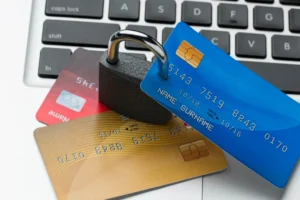Should You Consider Ditching Your Credit Card? Here’s What to Check
Credit cards can be incredibly useful — but what happens when they begin to backfire? Perhaps it's time for a little pause. Check it out!
Are Credit Cards a Handy Tool or a Financial Pitfall? It’s Up to You.
How can you determine if it’s time to stop using your credit card?

Let’s explore the key indicators that might suggest you’re overusing your credit card — and how to recognize when it’s time to take a break.
1. Your Balance is Spiraling Out of Control
If your balance keeps rising and you can’t settle your card, it may be time to rethink your spending habits.
Why it’s important:
Credit card interest rates in the U.S. are often quite steep — typically exceeding 20% annually.
Next steps:
Examine your spending closely. Are you purchasing what you truly need?
2. You’re Not Paying Off the Full Balance Monthly
A major advantage of credit cards is the ability to pay off the entire balance each month to avoid interest fees.
However, if you’re frequently only making the minimum payment (or less), that’s a warning sign. You’ll incur interest and it could damage your credit score.
Why it’s important:
Credit cards make it easy to spend even when you can’t pay it all back. Carrying a balance increases your interest costs, and things can escalate quickly.
Next steps:
Ideally, aim to pay your full balance each month. If that’s not feasible, consider pausing your card use until you regain control.
3. You’re Accumulating Debt Faster Than You Can Handle
Debt can creep up on you — especially when you swipe your credit card for daily expenses.
If you’re accumulating more debt each month without a clear plan to pay it off, that’s a warning sign.
Why it matters:
Using a credit card for everyday purchases like groceries or gas may seem innocuous, but it can swiftly lead to overwhelming debt.
What to do:
Establish a budget and trim down on unnecessary spending — it might sting a bit, but it’s essential.
You may need to halt card usage altogether to avoid worsening the situation.
4. Using It for Non-Essentials
It’s tempting to reach for your card for a night out or that fancy new gadget — even when it’s not a necessity.
If you frequently depend on your credit card for luxuries instead of genuine needs, it might be wise to reevaluate your spending habits.
Why it matters:
Credit cards can lure us into overspending, especially with enticing rewards that make us feel victorious.
However, splurging on non-essentials can severely impact your financial wellbeing.
What to do:
Shift your spending focus. Create a list that distinguishes needs from wants and promise to use your card solely for essentials.
If necessary, put your card on ice (literally or figuratively) or hide it away while you adjust your spending habits.
5. Your Credit Score Is Dropping
Your credit score is crucial — failing to make payments or carrying hefty balances can drastically lower it.
If you’ve seen your score decline, it’s a good time to reassess your credit card usage.
Why it matters:
A strong credit score can lead to lower interest rates on loans, renting apartments, and even securing certain jobs.
If your spending habits threaten your score, it’s time for a financial wake-up call.
What to do:
Keep an eye on your credit score regularly. If it’s decreasing due to excessive card use, take steps to address it: pay down debts, lower your credit usage, or correct any inaccuracies on your credit report.
Final Thoughts: Should You Stop Using Your Credit Card?
There isn’t a universal answer. What’s truly important is grasping your own financial situation.
The secret to responsible credit card use is self-control.
Using your card wisely—clearing the balance every month and steering clear of unnecessary debt—can transform it into a valuable financial asset.
If you find yourself trapped in a cycle of debt or relying on your card for unaffordable expenses, it may be a good time to pause and review your financial habits.





